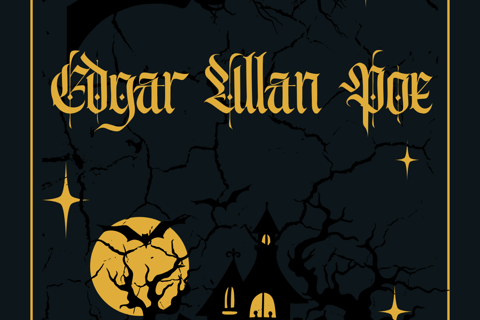
Exploring Dark Romanticism in Edgar Allan Poe's Quotes
Explore Edgar Allan Poe's haunting Dark Romanticism through his most captivating quotes, revealing themes of death, madness, love, and the supernatural that inspire gothic literature and murder mysteries.
EDGAR ALLAN POE
12/29/20245 min read


Edgar Allan Poe, a master of macabre and mystery, stands as a towering figure in the realm of Dark Romanticism. His works delve into the shadowy recesses of the human mind, exploring themes of death, despair, madness, and the supernatural. Poe’s quotes often encapsulate the eerie allure of his literary style, offering glimpses into the haunting beauty of his narratives. This blog explores how Edgar Allan Poe’s quotes reflect the core elements of Dark Romanticism and inspire a deeper appreciation for murder mysteries and gothic literature.
What is Dark Romanticism?
Dark Romanticism emerged in the 19th century as a counter-movement to the idealism of Romanticism, emphasizing the darker aspects of human nature. Unlike their Romantic counterparts, Dark Romantics such as Poe focused on themes like sin, guilt, and the inevitability of death. These themes often came to life through brooding, atmospheric settings and psychologically complex characters.
Poe’s works exemplify Dark Romanticism through his fascination with the macabre and his ability to find beauty in melancholy. His quotes act as windows into this enigmatic worldview, blending poetic elegance with chilling profundity.
Poe’s Obsession with Death: Beauty in Finality
One of Poe’s defining characteristics is his preoccupation with death, often portrayed as both terrifying and beautiful. His quote from “The Masque of the Red Death” encapsulates this duality:
“And Darkness and Decay and the Red Death held illimitable dominion over all.”
This chilling statement highlights the inevitability of death while crafting a vivid, almost theatrical imagery of decay. Poe doesn’t just write about death—he paints it with rich, evocative strokes, urging readers to confront their mortality.
In stories like “The Tell-Tale Heart” and “The Fall of the House of Usher”, death serves as a central theme, often accompanied by guilt and psychological unraveling. Such narratives captivate murder mystery enthusiasts by adding layers of suspense and horror.
Madness: The Dark Corners of the Mind
Madness is another recurring theme in Poe’s works, and his quotes reflect his deep understanding of the human psyche’s fragility. From “The Tell-Tale Heart”, he writes:
“It is impossible to say how first the idea entered my brain; but once conceived, it haunted me day and night.”
This quote captures the obsessive thoughts of the narrator, whose guilt and paranoia ultimately lead to his undoing. Poe’s portrayal of mental instability is both haunting and relatable, shedding light on the hidden fears and anxieties that lurk within us all.
Through his exploration of madness, Poe creates characters who teeter on the edge of reason, drawing readers into their unraveling minds. This psychological depth adds a layer of complexity to murder mysteries, making them more than mere whodunits.
The Supernatural and the Unseen
Poe’s fascination with the supernatural adds an ethereal quality to his works. In “The Raven”, one of his most famous poems, the narrator is visited by a mysterious bird that seems to embody his grief:
“Deep into that darkness peering, long I stood there, wondering, fearing, doubting, dreaming dreams no mortal ever dared to dream before.”
The raven becomes a symbol of unending sorrow, blurring the line between reality and the supernatural. Such imagery captivates readers, drawing them into a world where the unseen exerts a powerful influence over the living.
This theme resonates with murder mystery fans, as the supernatural often serves as an eerie backdrop that intensifies the suspense and unpredictability of the plot.
Love and Loss: The Bittersweet Duality
Poe’s exploration of love often intertwines with loss, creating a poignant duality that defines many of his works. In “Annabel Lee”, he writes:
“But we loved with a love that was more than love—I and my Annabel Lee— / With a love that the wingèd seraphs of Heaven / Coveted her and me.”
The poem mourns the death of a beloved, blending themes of undying love and tragic loss. This interplay between romance and despair reflects Poe’s ability to evoke deep emotions while maintaining an air of gothic mystery.
For readers of murder mysteries, Poe’s treatment of love and loss offers a humanizing touch, reminding us that even in the darkest tales, there exists a thread of vulnerability and longing.
Nature as a Mirror to Emotion
In true Dark Romantic fashion, Poe often uses nature to reflect the inner turmoil of his characters. In “The Fall of the House of Usher”, he describes the titular mansion as:
“A melancholy house of gloom… upon the bleak walls, upon the vacant eye-like windows.”
Here, the decaying mansion mirrors the psychological collapse of its inhabitants. Such vivid descriptions immerse readers in an atmosphere of dread, making the setting an integral part of the narrative.
For mystery enthusiasts, Poe’s use of nature and setting enhances the mood, creating a sense of foreboding that keeps readers on edge.
Poe’s Legacy in Modern Murder Mysteries
Edgar Allan Poe’s influence extends far beyond the 19th century, shaping the conventions of modern murder mysteries. His focus on psychological depth, atmospheric settings, and intricate plots has inspired countless writers in the genre.
Consider how Poe’s approach to suspense—gradually building tension and withholding key information—parallels the structure of contemporary thrillers. His use of unreliable narrators and ambiguous endings leaves readers questioning what is real, a technique that remains a staple in mystery writing today.
One of his most enduring contributions is the detective story. Poe’s character C. Auguste Dupin, introduced in “The Murders in the Rue Morgue”, is considered the prototype for fictional detectives like Sherlock Holmes and Hercule Poirot.
“The mental features discoursed of as the analytical, are, in themselves, but little susceptible of analysis.”
— “The Murders in the Rue Morgue”
This quote emphasizes the intellectual prowess required to solve complex mysteries, a trait that has defined detective protagonists ever since.
Why Poe’s Dark Romanticism Resonates Today
In a world filled with fast-paced entertainment, Edgar Allan Poe’s works invite readers to slow down and immerse themselves in stories that explore the depths of human emotion. His quotes resonate with timeless themes—love, loss, madness, and mortality—offering insights that feel as relevant today as they did in his time.
Moreover, Poe’s masterful storytelling encourages readers to embrace the unknown, to find beauty in darkness, and to appreciate the complexity of the human condition. For fans of murder mysteries, his works provide a rich tapestry of suspense, psychological intrigue, and gothic atmosphere that continues to inspire and enthrall.
Dive Into the World of Mystery and Macabre
If you’ve been captivated by Poe’s quotes and themes, now is the perfect time to explore his stories in full. Begin with classics like “The Tell-Tale Heart”, “The Raven”, and “The Cask of Amontillado”, and let their haunting beauty draw you into the world of Dark Romanticism.
As you delve deeper into the genre, consider how Poe’s legacy lives on in modern murder mysteries and thrillers. Whether you’re a seasoned fan or new to the world of gothic literature, Poe’s works offer a gateway to stories that challenge, unsettle, and ultimately delight.
So dim the lights, grab a cozy blanket, and lose yourself in the shadowy world of Edgar Allan Poe—where the line between beauty and terror blurs, and every page promises a new revelation.
Conclusion
Edgar Allan Poe’s mastery of Dark Romanticism lies in his ability to turn the grim and grotesque into something profoundly moving. His quotes, laden with emotion and intrigue, encapsulate the very essence of murder mysteries, making him a timeless figure in literature. Let his words guide you into a world of suspense and intrigue, where the darkest corners of the human mind reveal their secrets—and where every mystery begs to be solved.





